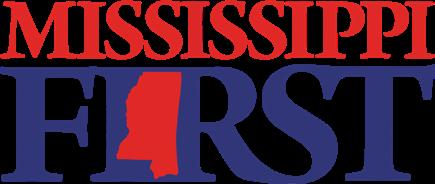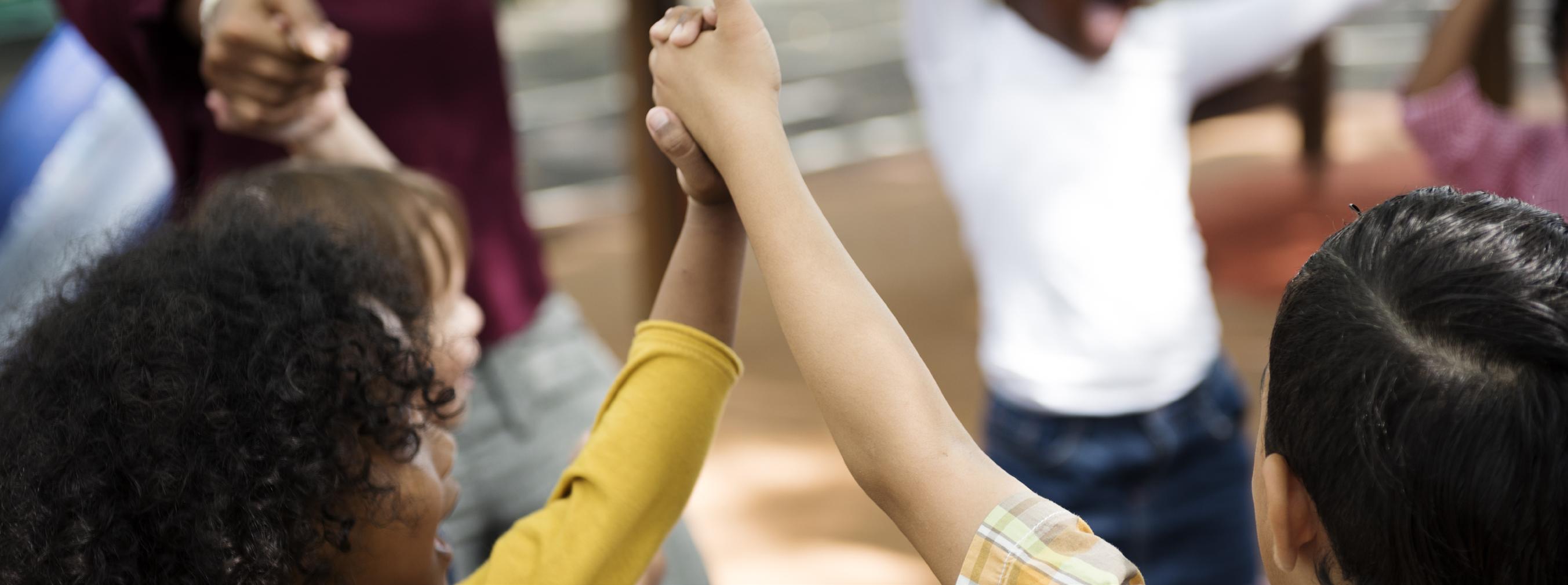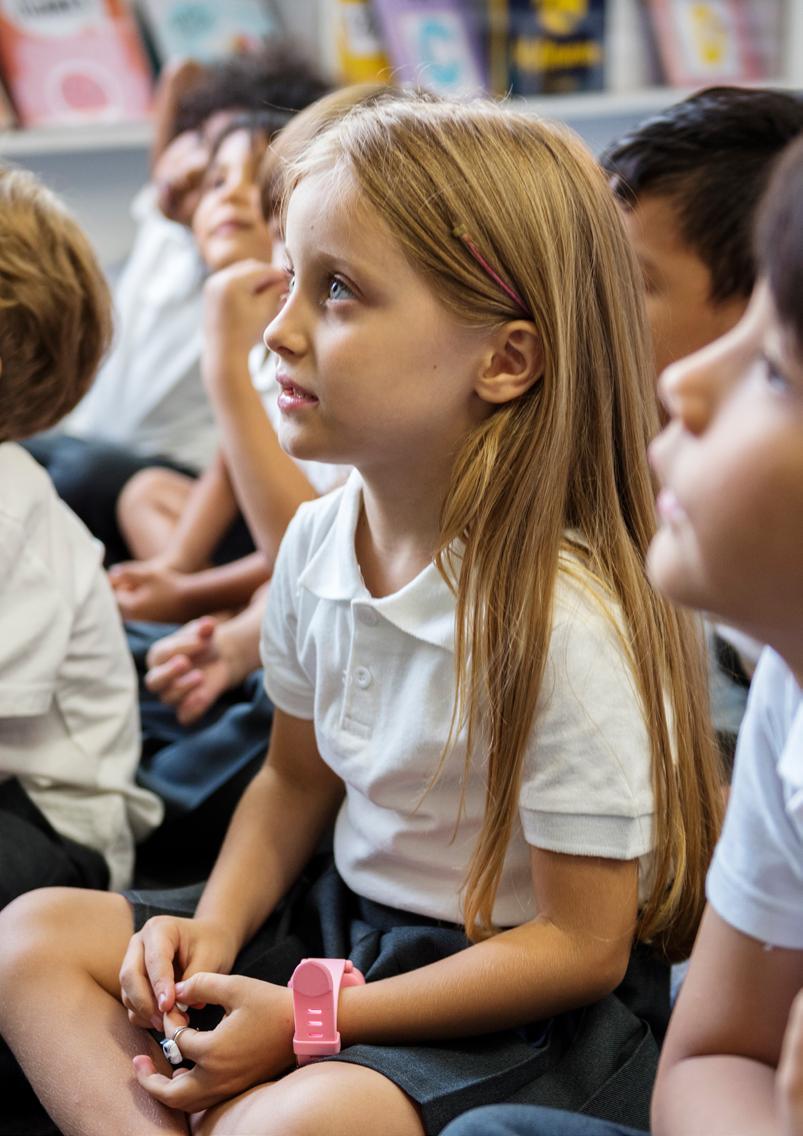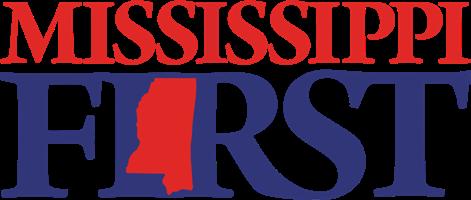






In 2013, the State of Mississippi took an historic step by passing the Early Learning Collaborative Act. The law established a collaborative delivery, state-funded pre-K program in which private or parochial schools, private childcare centers, and or Head Start centers may join with a local public school district and compete for state funds in order to provide pre-kindergarten services to a specific community. All funded collaboratives must adhere to state regulations requiring that they meet nationally recognized standards of quality.
Under the Early Learning Collaborative Act of 2013, individuals or corporations who make a contribution to support the local matching fund of an approved early learning collaborative may be eligible to receive a state tax credit for the donated amount up to $1,000,000. The Mississippi Department of Revenue can approve 1:1 tax credits up to the amount the legislature appropriates to the Early Learning Collaborative Act each year.


When children start school without important skills, it becomes harder for them to achieve their potential without considerable intervention. These challenges can often lead children to face more severe issues, such as being retained in a grade, experiencing discipline troubles, or failing to finish high school.
The Pre-K Tax Credit is unique because any individual or business paying state taxes can qualify if they make a proper donation to an approved collaborative.
Under the Early Learning Collaborative Act of 2013, the costs for providing pre-kindergarten services to four-year-old children amount to a minimum of $5,000 per child enrolled in full-day programs and a minimum of $2,500 per child enrolled in half-day programs. The State of Mississippi provides half of these costs (a minimum $2,500 per child enrolled in full-day pre-K and a minimum of $1,250 per child enrolled in half-day pre-K). However, the State requires that the other half be provided by local matching funds, which may include local tax dollars, federal dollars (as allowed), parent tuition, philanthropic contributions, or in-kind donations of facilities, equipment, and services required as part of the program, such as food service or health screenings. Individuals or businesses who are interested in donating can help ensure early learning collaboratives can provide high-quality care by donating to their local matching funds.

Each legislative session, the legislature determines how much funding is invested into the Early Learning Collaborative Act of 2013. In 2025, the state maintained its $29 million investment in pre-K. Donations to all collaboratives are capped at the amount appropriated by the legislature to the collaborative program in a given year. Since the fiscal year and the calendar year do not align, the Mississippi Department of Education (MDE) averages the appropriation amounts across fiscal years within a calendar year. However, because the legislature appropriated $29 million in both 2024 and 2025, the tax credit cap for 2025 is also $29 million.


$29.MILLION
is the 2025 appropriation for the Early Learning Collaborative Act.
The sum of donations eligible for the tax credit may not exceed $29 million.

Tax credits are often confused with tax deductions. Tax deductions reduce the amount of your taxable income (what you earned), while tax credits reduce your tax liability (what you owe).
Without any credits or deductions, this is how tax liability is calculated with a income of $50,000 and a

1
The tax credit is first come, first served based on the date of a qualifying donation. First, contact the Lead Partner for the collaborative to which you wish to donate. See page 7 for a list of all the currently approved early learning collaboratives, along with contact information for the person responsible for collecting donations. The Mississippi Department of Education (MDE) tracks qualifying donations towards the cap. When contacting the Lead Partner, verify that the tax credit cap has not been reached. If the program is nearing the cap, a donor can request that MDE “hold” the contribution spot for 30 days, pending the documentation of the donation, to ensure the donor’s place in line for the credit.
2
3
After you make a donation, the Mississippi Department of Education will issue you a donation certificate documenting that you have contributed to the local matching funds of an approved collaborative. This documentation preserves your place in line to claim the tax credit.
Indicate your donation when you file your state taxes. Use form 80-401, which can be found on the Department of Revenue’s website. The Department of Revenue will verify your donation with MDE.
APPROVED TO RECEIVE DONATIONS FOR THE TAX CREDIT
Biloxi Early Learning Collaborative
Brookhaven Early Learning Collaborative
Clarke County Early Learning Partnership
Cleveland Early Learning Collaborative
Coahoma County Pre-K Collaborative
Corinth-Alcorn-Prentiss Early Learning Collaborative
George County Early Learning Collaborative
Greenwood - Leflore Early Learning Collaborative
Grenada Early Learning Collaborative
Hattiesburg Early Learning Collaborative
Hollandale Early Learning Collaborative
Holly Springs Early Learning Collaborative
Holmes County Early Learning Collaborative
Jackson Public Schools/Hinds County Early Learning Collaborative
Jefferson County Early Learning Collaborative
Kosciusko Early Learning Collaborative
Lafayette-Oxford-University Early Leaning Collaborative
Lamar County Early Learning Collaborative
Lee County Early Learning Collaborative
Leland Early Learning Collaborative
Trenisha Weekley trenisha.weekley@biloxischools.net
Stacy Walker stacy.walker@brookhavenschools.org
Dixie McCollough dmccollough@qsdk12.org
Patsy Clerk pclerk@cleveland.k12.ms.us
Peggy Hemphill phemphill@cmsd.k12.ms.us
Kate Killough kkillough@corinth.k12.ms.us
Kristi Kirkwood kristi.kirkwood@gcsd.us
Edshundra Gary egary@glcsd.org
Kim Ezelle kezelle@grenadak12.com
Hope Mikell hope.mikell@hattiesburgpsd.com
Shontelle Johnson sjohnson@hollandalesd.org
Sherna Jones shjones@hssdk12.org
Alfreda Brown alfreda.brown@holmesccsd.org
Felicia Thomas fthomas@jackson.k12.ms.us
Yashica Suddeth ysuddeth@jcpsd.net
Suzanne Crosby suzanne.crosby@kosciuskoschools.com
Cara Buffington cbbuffington@oxfordsd.org
Nicole Register nicole.register@lamark12.org
Jodie Boyd jodie.boyd@leecountyschools.us
Linda McAdory lindamcadory@lelandk12.org
Long Beach Early Learning Collaborative
Lowndes County Early Learning Collaborative
Marion County and Columbia Early Learning Collaborative
McComb Community Collaborative for Early Learning Success
Monroe Early Learning Collaborative
Noxubee Early Learning Collaborative
Pascagoula-Gautier Early Learning Collaborative
Pass Christian Early Learning Collaborative
Petal Early Learning Collaborative
Picayune Early Learning Collaborative
Pontotoc Pre-K Partners Early Learning Collaborative
Rankin County Early Learning Collaborative
Scott County Early Learning Collaborative
Senatobia Early Learning Collaborative
South Panola County Early Learning Collaborative
Starkville Oktibbeha Early Learning Collaborative
Tallahatchie Early Learning Alliance
West Jasper Early Learning Collaborative
West Point Early Learning Collaborative
Yazoo City Early Learning Collaborative
Kelleigh Broussard
kelleigh.broussard@lbsdk12.com
Kristie Jones kristie.jones@lowndes.k12.ms.us
Haley Green hgreen@marionk12.org
Johnnie Vick vickj@mccomb.k12.ms.us
Jennifer Calvert jcalvertmelc@gmail.com
Helen Gilkey hgilkey@ourncsd.org
Kelly McCorkle kmccorkle@pgsd.ms
Mandy Lacy mlacy@pc.k12.ms.us
Jana Perry jana.perry@petalschools.com
Pamela Thomas pthomas@pcu.k12.ms.us
Felicia Pollard fpollard@pontotoc.k12.ms.us
Lakeisha Maxer lakeisha.maxer@rcsd.ms
Nyisha Wells nwells@scott.k12.ms.us
Monica Mitchell mmitchell@senatobiaschools.com
Lashunda Hamilton lhamilton@spanola.net
Mary Coleman mcoleman@starkvillesd.com
Cheryl Swoopes cheryl@sonedna.com
Tony Keys tkeys@westjasper.org
Kim Taylor ktaylor@ics-hs.org
Sametra Brown sbrown@masd.k12.ms.us
1 How do I make a qualifying donation to a pre-K collaborative?
Contact the Lead Partner for the collaborative to which you wish to donate. You may donate to the collaborative as a whole or to a specific provider within the collaborative. Collaboratives always welcome cash donations. However, you can also donate in-kind resources, such as goods or services. Contact the collaborative first to see if the goods or services will be accepted. Once you have made a donation, the Mississippi Department of Education (MDE) will issue you a donation certificate to allow you to claim the tax credit when you file your taxes.
2
If I want to donate to a specific provider instead of the whole collaborative, how do I do that?
Follow the same steps that you would to donate to the collaborative, except tell the Lead Partner that you want your donation to be earmarked for a specific provider.
3 Is there a limit to how much of a tax credit I can claim?
You can donate an unlimited amount to a collaborative or specific provider. However, any individual or organization can only receive a credit of up to $1,000,000.00 in a single year.
4 How do I claim the pre-K tax credit?
When you file your taxes, you must fill out form 80-401, which can be found on the Department of Revenue’s website each year. The Department of Revenue will verify your eligibility through MDE. Keep your donation certificate as your documentation.
5 What is the total amount of credits available for this tax year?
The Mississippi Department of Revenue can approve 1:1 tax credits up to the amount the legislature appropriates to the Early Learning Collaborative Act each year. Check with MDE for the annual amount.
6 When do I need to make my donation in order to claim the tax credit?
Donations must be made during the calendar year for which a tax return is filed. For tax returns filed during next calendar year, the donation must be made this calendar year. The tax credit is first come, first served based on the date of donation.
7
How will the Department of Revenue determine who receives the tax credit if the cap is reached?
MDE issues a donation certificate to donors in the order that donations are received to ensure that the tax credit is available at the time of donation. As long as you have a donation certificate, you can claim the tax credit, regardless of the order in which you file your state taxes. This new process incentivizes donors to donate early in the year, rather than wait until December.
8 As an individual, if I have too much money withheld from my income and I make a qualifying donation in order to claim the tax credit, how much money will I get in a refund?
A tax credit reduces the amount of taxes that a person owes. The Department of Revenue (DOR) will first calculate the amount of taxes you owe based on your income. This is called your tax liability. DOR will subtract from your tax liability any tax credits you can claim. Then, your withholdings (money that you had withheld for taxes from your paycheck each pay period), if any, will be applied to the amount of remaining tax liability after subtracting your tax credits. If you have had more taxes withheld from your paycheck than your remaining tax liability after subtracting your tax credits, you will qualify for a refund for the amount of withholdings that you overpaid.
For example, let’s assume that you earned $50,000 in taxable income in a year, and you are required to pay 20% in taxes, or $10,000. (In other words, your tax liability is $10,000.) During the tax year, you also made a qualifying donation of $2,000 to your local collaborative. This donation means you can claim a $2,000 tax credit, which will reduce your tax liability to $8,000.
Tax liability of $10,000- Tax credit of $2,000 = Remaining tax liability of $8,000
Let’s also assume that you had $8,500 withheld from your paycheck over the course of the year. Because your withholdings were greater than your remaining tax liability, you would qualify for a refund in the amount of the overpayment:
Remaining tax liability of $8,000 – Withholdings of $8,500 = Overpayment of $500 = Refund of $500
It is very important to note that while your withholdings are refundable, the tax credit itself is not refundable. This means that if you make a qualifying donation that is greater than your tax liability, you will not get a “refund” for the amount of the donation greater than your liability.
For example, let’s assume again that your tax liability is $10,000, but this time, you make a qualifying donation of $15,000.
Since the tax credit is not “refundable,” you will not receive the $5,000 as a refund; instead, your current year tax liability has been reduced to $0. Since your tax liability is $0 in this example, any withholdings from your earnings will be returned to you as a refund.
What happens to the $5,000 from our example above? The pre-K law allows donors to “carry forward” unused portions of the tax credit. In other words, if you qualify for a tax credit that is greater than your tax liability in the year you donated, you can “carry forward” the unused portion for the next three years to apply to future taxes. As in our example, if you donated $15,000 but only owed $10,000, you can apply the $5,000 extra that you donated in this tax year to your taxes for next year. Tax credits that are “carried forward” do not count against the cap, so if you donate extra this year and the cap is reached next year, you can still use your remaining tax credit next year.
9 If my company pays too much in its quarterly estimated tax payments and makes a qualifying donation in order to claim the tax credit, how much money will the company receive in a refund?
See the answer to #8. The process to calculate a refund would be the same, except instead of withholdings, a company should substitute its estimated tax payments.
10 Is the tax credit refundable?
No. See the answer to #8 to understand what refunds you might qualify for.
11
How will I know when the tax credit cap is reached if I want to donate?
Your local collaborative can tell you what remains of the tax credit at the time you wish to donate. If the donor is concerned the cap may be reached quickly, a donor can request that MDE “hold” the contribution spot for 30 days, pending the paperwork documenting the donation. The donor will need to indicate the collaborative receiving the donation as well as the amount. Remember, regardless of when or if the cap is reached, the Department of Revenue will award the tax credit to donors with a donation certificate when they file their taxes.
12 Do I need to file my taxes quickly in order to claim the tax credit?
No, because MDE is now tracking tax credit eligibility in real time, donors with a donation certificate will receive the credit regardless of when they file. The Department of Revenue publishes the forms and instructions for state taxes in January of each year. As soon as the new form is out for claiming a tax credit, you can file your tax return.
13 Can I claim the state tax credit and a federal tax deduction for the same qualifying donation?
No. In years past, the IRS regulations about using the same donation for a state tax credit and a federal deduction were ambiguous; however, the IRS finalized rules in 2019 that prohibit the practice if the full amount of the donation is used for a state tax credit. Since the pre-K tax credit is 1:1 (in other words, 100% of the donation can be used for credit) and any unused amount can be carried forward, there is no remaining
amount that can be used for a federal deduction if a donor claims the pre-K tax credit. This means that a donor should choose whether to use their pre-K donation for either the state tax credit or a federal deduction. Donors should make this decision based on their own circumstances in consultation with their tax advisors. For more information, we encourage you to read the final regulations on charitable contributions and state and local tax credits on the IRS website: https://www.irs.gov/newsroom/ final-regulations-on-charitable-contributions-and-state-and-local-taxcredits.
14 How will I know what the cap is every year?
The legislature must annually appropriate money to fund the pre-K program. The tax credit cap is dependent upon this annual appropriation. Your local collaborative or MDE can tell you what money was appropriated and, therefore, what the cap is.
15 What if I am eligible for a state tax credit larger than what I owe in state taxes?
You can “carry forward” unused portions of the tax credit for up to three years. See the answer to #8 for more explanation.
Support Mississippi kids by investing in the early learning providers who work endlessly to provide high-quality education to those who need it the most. Your support will allow Mississippi’s state-funded pre-K program to continue to grow and grant more Mississippi kids access to excellent early childhood education.
Contact a lead partner today to get started on investing in Mississippi's early learners!

Mississippi First is a 501c3 public policy nonprofit that champions transformative policy solutions ensuring educational excellence for every Mississippi child. Mississippi First is a leading voice for state-funded pre-K, high-quality public charter schools, rigorous state learning standards, and commonsense testing and accountability policies. We are also actively engaged in improving Mississippi’s educator pipeline.